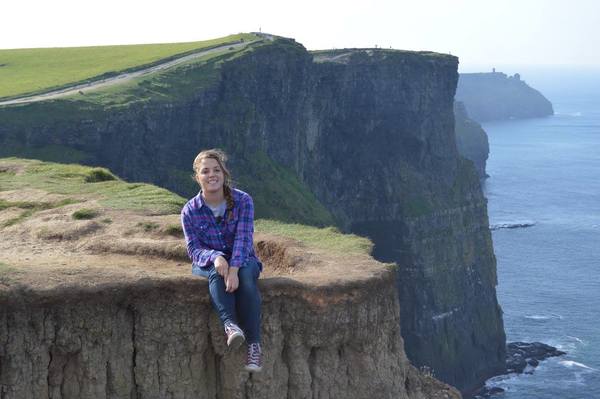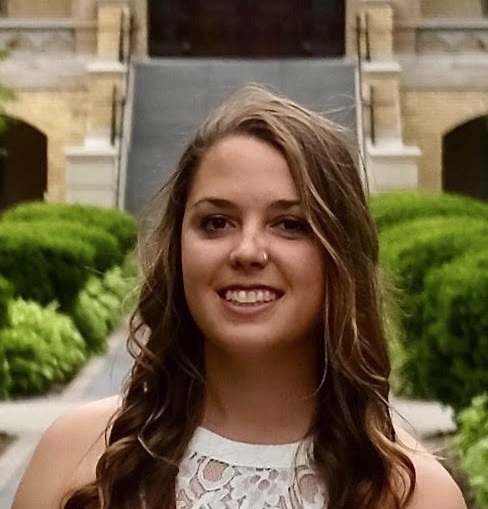

Plodding along wet grass or enjoying a tree’s shade are daily activities, but how often do we think about why that grass is wet or why a certain tree grows where it does? Caitlin Broderick ’17 pondered such questions regularly during her senior year. Not only did she study the forests of the Yellow River watershed in northern Indiana, she also received an Outstanding Biological Scientist Award on her sustainability thesis based on this research.
Caitlin, a biology major minoring in sustainability, started working in Dr. Jason McLachlan’s lab before she began her sustainability capstone. In 2015 she was digitizing pre-EuroAmerican tree patterns in the Yellow River watershed, based off of old land survey notes. When she noticed a clear line between the oak-dominated forests and the mixed-hardwood forests, Caitlin’s curiosity was peaked. “These initial observations helped me to formally map these historic vegetation patterns,” Caitlin explains. “And they aided comparison with the forest structure and composition of modern forests based on current surveys.” Today’s forests don’t show the same sharp transition as historic forests and changing land use patterns are one clue behind this change in species distribution.

Examining the ways in which land use changes and environmental change impact the forest structure allowed Caitlin to develop this project into a sustainability capstone. Communicating with external stakeholders about how tree distribution can inform land management was only one aspect of her project. She also confronted the challenge of submitting a scientific paper for publication, but Caitlin didn’t face this alone. “It was a pleasure to work with Jody Peters, Jason McLachlan and Kelly Heilman on both a paper for publication as well as outreach ideas,” Caitlin says, referring to the program manager, the principal investigator and a graduate student in the McLachlan Lab, respectively. From multiple drafts of her manuscript to meetings with advisors, writing the paper involved weekly deadlines. It was hard work! “But it provided a great crash course in the long revision process of scientific writing, and the constant input from everyone involved in the project ultimately helped us tell a coherent ecological story.”
Though she’s left Notre Dame and the Yellow River watershed behind, Caitlin is continuing to study plant communities this year as she begins a Ph.D. program in biology at Kansas State University. She is excited to study the prairie plant communities, looking at ecosystem function and climate change, and to continue the action-oriented research she began at Notre Dame. “One aspect that drew me to the program is that they work closely with restoration groups, land managers and other interest groups in order to develop the best ways to protect ecological communities and optimize agricultural economies,” Caitlin says, emphasizing the importance of her past experiences in informing her future projects. “These types of challenges are ones that the Sustainability minor at Notre Dame prepared me to confront.”